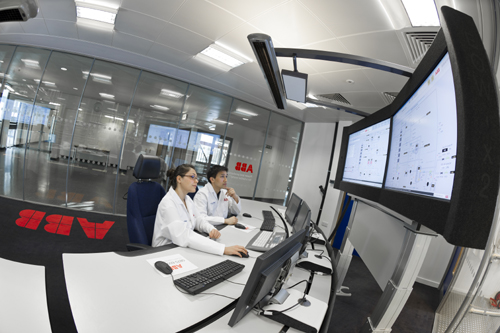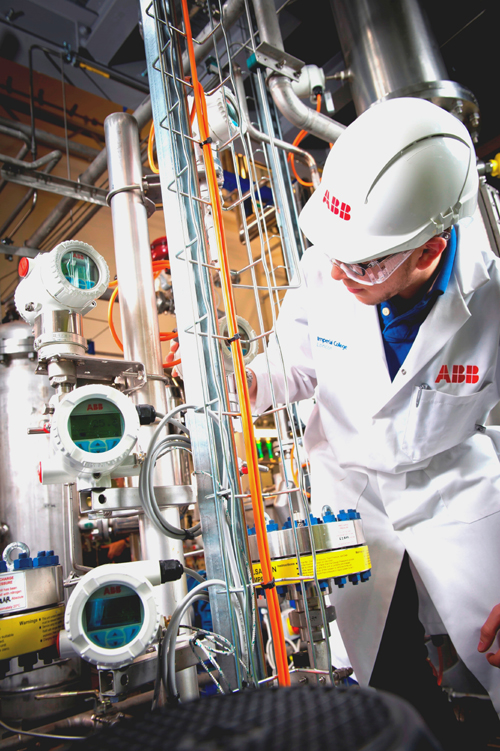 The widening skills gap within British engineering is something that has been well documented. Recent research by the Institute of Mechanical Engineers has revealed the huge challenge faced by organisations to recruit new engineers, as demand is far outweighing current supply. And, of those students that do graduate from university with engineering qualifications, not all go on to pursue that career path.
The widening skills gap within British engineering is something that has been well documented. Recent research by the Institute of Mechanical Engineers has revealed the huge challenge faced by organisations to recruit new engineers, as demand is far outweighing current supply. And, of those students that do graduate from university with engineering qualifications, not all go on to pursue that career path.
Add to this the fact that higher education is in a state of flux with the internet and social media challenging traditional teaching methods, and you’d be forgiven for thinking that universities, particularly those specialising in engineering, could be facing an uncertain future.
However, Imperial College London, in partnership with ABB, has launched a new carbon capture pilot plant teaching facility located at the university’s central London campus which is set to become a centre of excellence and provide the engineering pioneers of the future.
ABB has invested close to £1m and signed a ten year agreement with the college, and has supplied instrumentation, drives, motors and process automation equipment to the project.
The control room of the plant provides students with hands-on experience of pilot scale industrial plant operations and is the only facility of its kind in an academic institution in the world. The pilot plant will be used in undergraduate teaching with the aim of equipping students with the practical skills needed for a career in industry.
 The agreement between ABB and the college gives the university access to advanced control and instrumentation technology, as well as lifecycle services and support for the installation. In return, ABB has access to the carbon capture pilot plant for its own use and will use the facility for customer demonstrations and training, staff learning such as inter-divisional training, hands-on experience for its apprentices and product testing and software evaluation.
The agreement between ABB and the college gives the university access to advanced control and instrumentation technology, as well as lifecycle services and support for the installation. In return, ABB has access to the carbon capture pilot plant for its own use and will use the facility for customer demonstrations and training, staff learning such as inter-divisional training, hands-on experience for its apprentices and product testing and software evaluation.
“The pilot plant is a global showcase for the latest and best process control and instrumentation technology in use at one of the world’s leading engineering institutions,” said Martin Grady, general manager, Oil, Gas and Petrochemical – UK, ABB. “We will be able to trial new technology in a low risk, well managed environment to gather Beta site test data. It also gives ABB a great platform to train its staff and customers on a real pilot plant.”
To further support its involvement with Imperial, ABB is providing four summer placements of eight to ten weeks per annum in its UK operations. In addition a summer placement in Brisbane, Australia will be awarded to a student on the university’s exchange programme, after spending their third undergraduate year in Australia. One final year student will be selected from previous summer students to have their final year tuition fees paid by ABB.
“By investing in the pilot plant and the awards, we are effectively investing in our own future, by making sure that ABB will have ready access to a stream of bright young engineers,” said Grady. “One of our biggest problems is finding enough suitably qualified engineers to fill the ever growing range of opportunities we can offer. Obviously if engineering in the UK flourishes, then we flourish too.
“The move by ABB is partly in response to government initiatives aimed at rebuilding the manufacturing base of the UK and re-establishing the important contribution that engineering makes to people’s everyday lives. The UK needs to increase its base of skilled engineers if it is to grow its manufacturing sector towards its potential. We believe that the pilot plant will support education by giving tomorrow’s engineers hands-on exposure to real life technology. This pilot plant really brings the real world into the classroom for the first time.”
 In recognition of ABB’s support for the new carbon capture pilot plant, Imperial has named the centre-piece of the installation the ABB Control Room. The ABB Control Room houses the extended operator workplace (EOW) and the distributed control system, System 800xA, from where operators can control and supervise the plant.
In recognition of ABB’s support for the new carbon capture pilot plant, Imperial has named the centre-piece of the installation the ABB Control Room. The ABB Control Room houses the extended operator workplace (EOW) and the distributed control system, System 800xA, from where operators can control and supervise the plant.
Dr Daryl Williams of Imperial College, added, “There are a number of issues within industry concerning things like energy and power etc, but providing the solutions to these issues always asks questions about the ‘how’ and seldom about the ‘who’? This new pilot plant will provide the answer to this and will provide a magnet for research.”
A video explaining how the carbon capture plant works is available below.

